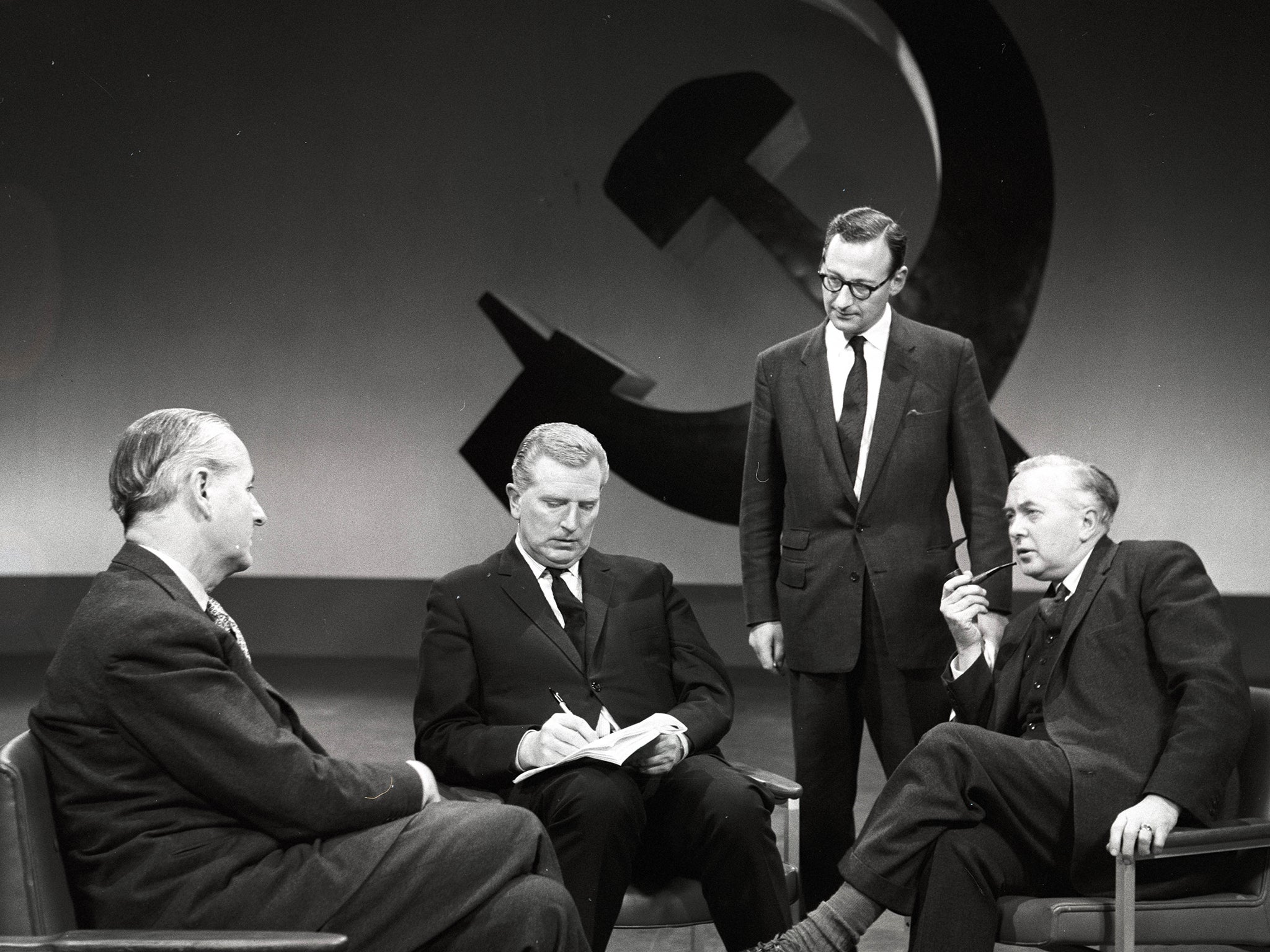A Very Private Celebrity: The Nine Lives of John Freeman by Hugh Purcell - book review: A private life, a public face
The real Freeman – the heart and soul of the man – remains an enigma, which is exactly as he would have wished

When John Freeman died last December, just two months short of his 100th birthday, obituaries focused on the television interviewer who became legendary for his series Face to Face. Between 1959 and 1962 he grilled some of the most remarkable personalities of the 20th century, including Carl Jung, Bertrand Russell and Martin Luther King. The show is still remembered for Freeman’s penetrating questions (“Tell me, why do you go on?” he asked the troubled comedian Tony Hancock), and the format which filmed him only from behind. What came as a surprise to many people reading these obituaries, however, was the diversity of Freeman’s career before and after television – a life he rarely talked about, turning down requests for interviews and memoirs.
For Hugh Purcell, this was like a red rag to a bull, and he has spent the past 10 years pursuing Freeman’s surviving friends, family and colleagues for information, and persistently making polite requests to the man himself – usually to little effect. Nevertheless he manages to piece together Freeman’s life in a progression of vignettes so astonishing that it is almost impossible to believe they are portraits of the same person.
Freeman was born to a well-off barrister’s family in London in 1915. He later said he disliked his “pretty but silly” mother and distant father. His most formative experiences were at Westminster School, from the privileged halls of which he watched the hunger marches on Parliament Square, and where in 1931 he met a visiting Mahatma Gandhi. These experiences committed Freeman to the socialist cause, a position he said was “axiomatic” given the inequalities of the time.
Purcell’s biography takes the form of a detective trail, and the first evidence he finds of Freeman’s life-long attempts at anonymity are during his student years at Oxford, where as editor of Cherwell he disguised himself under a pseudonym.
Freeman’s war records show him as a distinguished officer in the Desert Rats, and later have him in Germany in the lead up to the surrender. Just days before, however, he returned to England to prepare for the 1945 general election where he stood as the Labour candidate for Watford and won, aged just 30. He quickly became an admired member of Clement Attlee’s government; indeed Churchill is said to have wept when Freeman made his maiden speech, declaring: “All the best young men are on the other side.”
But Freeman disliked the grind of political life and moved from politics to broadcast journalism in 1955. Face to Face followed, but in 1961 he moved again to become editor of the New Statesman. Purcell delights in the minutiae of media history but struggles to uncover the full details of Freeman’s complex personal life. By 1948 he was already on his second wife, who died in 1957, and in 1962 he married his third wife, Catherine, a television producer who has contributed to the book. Famous lovers such as Barbara Castle and Edna O’Brien are tantalisingly mentioned, but with little illumination. Another twist in Freeman’s career came in 1965 when, aged 50, he began a new career as a diplomat, serving first as High Commissioner to India, and next as ambassador to America, where he charmed both Nixon and Kissinger and began an affair with his social secretary.
In his late 50s, Freeman abandoned his diplomatic career and (now on his fourth wife) became a television executive, working at LWT alongside David Frost and Rupert Murdoch. This is the story of an extraordinary human being, and yet despite Purcell’s best efforts, the real Freeman – the heart and soul of the man – remains an enigma, which is exactly as he would have wished.
Join our commenting forum
Join thought-provoking conversations, follow other Independent readers and see their replies
Comments